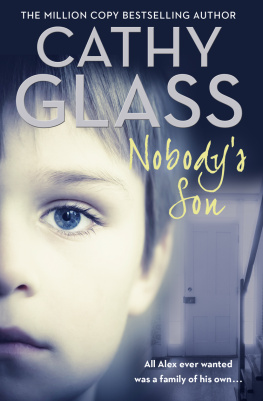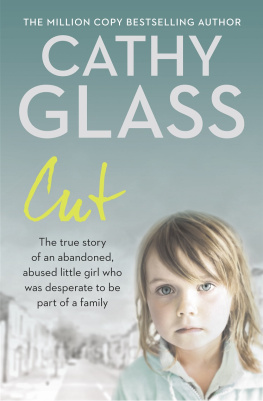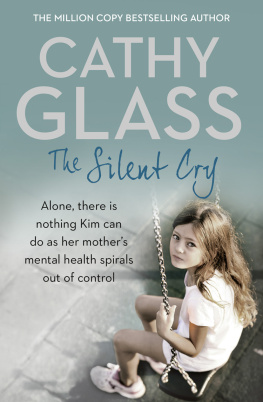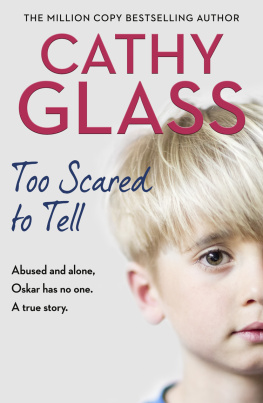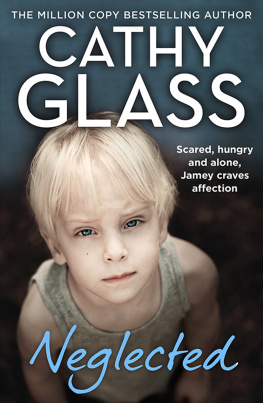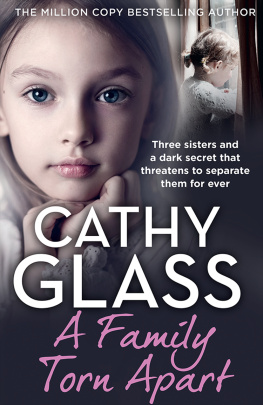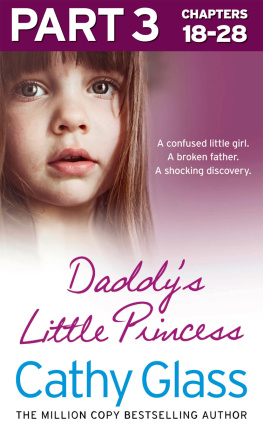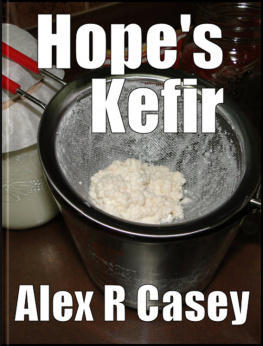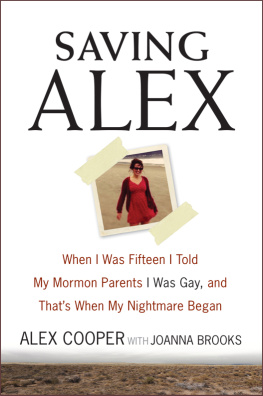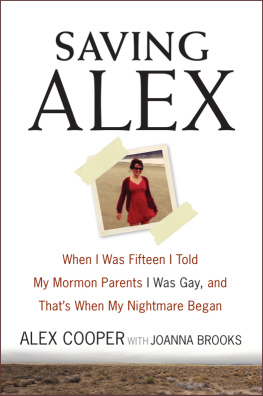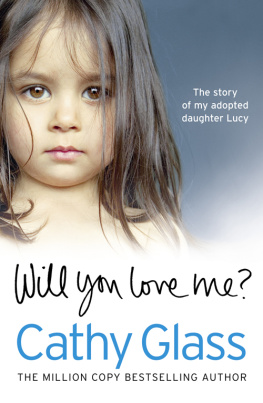Certain details in this story, including names, places and dates, have been changed to protect the familys privacy.

HarperElement
An imprint of HarperCollinsPublishers
1 London Bridge Street
London SE1 9GF
www.harpercollins.co.uk
First published by HarperElement 2017
FIRST EDITION
Cathy Glass 2017
Cover layout design HarperCollinsPublishers Ltd 2017
Cover photograph Deborah Pendell/Arcangel Images (boy, posed by model); Shutterstock.com (background)
A catalogue record of this book is available from the British Library
Cathy Glass asserts the moral right to be identified as the author of this work
All rights reserved under International and Pan-American Copyright Conventions. By payment of the required fees, you have been granted the nonexclusive, non-transferable right to access and read the text of this e-book on screen. No part of this text may be reproduced, transmitted, downloaded, decompiled, reverse engineered, or stored in or introduced into any information storage retrieval system, in any form or by any means, whether electronic or mechanical, now known or hereinafter invented, without the express written permission of HarperCollins e-books.
Find out about HarperCollins and the environment at
www.harpercollins.co.uk/green
Source ISBN: 9780008187569
Ebook Edition February 2017 ISBN: 9780008187576
Version: 2017-03-02
Contents
A big thank you to my family; my editors, Carolyn and Holly; my literary agent, Andrew; my UK publishers, HarperCollins, and my overseas publishers, who are now too numerous to list by name. Last, but definitely not least, a big thank you to my readers for your unfailing support and kind words.
We immediately fell silent as the noise sounded again. The children stared at me anxiously before our eyes went towards the curtains drawn across the patio doors. It was cold and dark outside, but something was out there scratching and trying to get in. Not our cat; she was asleep by the warm radiator, and it didnt sound like a cat anyway. I stood and gingerly crossed the room, my heart pounding and my senses on full alert. There were just the children and me in the house, and I tried to hide my fear from them as I eased one curtain aside and peered into the dark. Nothing. Whatever it was had vanished again like a phantom into the night.
Chapter One
Id taken six months off from fostering after my husband had left me. There, I said it my husband left me. It had been a difficult time, adjusting, supporting my children and reassuring them that it wasnt their fault and their father still loved them. But the fact that I was now able to say out loud that my husband had left me meant I was coming to terms with it and moving on, just as my counsellor had said I would. I only saw her four times and she was also the vicar of our local church. Not that wed been regular church-goers Christmas, Easter, Mothering Sunday and the occasional family service but I knew she was approachable, down to earth and offered counselling. She wouldnt ask me to pray for my husbands salvation or even forgive him, which I couldnt do yet. Get over his cheating and lies and the rejection, yes, but not forgive him, not for making my children fatherless. Shed listened sympathetically, but more importantly shed told me it was time to acknowledge that my marriage was at an end, that Id done my best to salvage it and that I should now move on with my life.
In the six months Id been away from fostering many changes had taken place, developments in procedure and practice that remain part of fostering today. I now had a link worker, Jill, also known as a support or supervising social worker, whose role, as her title suggested, was to support and monitor my fostering to make sure it was to a good standard, to check my log notes were up to date and that my training needs were met. Ongoing training and report writing were now part of fostering for carers and I had to keep a daily record of the child I was looking after, which included appointments the child had, their health and wellbeing, education, significant events and any disclosures the child made about their past. There were also regular reviews for the child and an annual review for the foster carer, and fostering was provided through agencies. I worked for Homefinders, an independent fostering agency with charity status. But of course the heart, the essence of fostering, remained the same. The foster family looked after a child or children, short or long term, who, for any number of reasons, couldnt be looked after by their own parents, and their stories and past experiences were still heart-rending and varied. One change I didnt like was that the children now had to call me their foster carer rather than their foster mum, as it was felt it might be confusing for them. It seemed a bit cold to me, but I had to abide by this as I did all the other fostering practices and regulations.
When I asked my son Adrian, then aged seven, if he thought we were ready to start fostering again, he replied with a resounding, Yes. Then added, Its time we got back to normal. An old head on young shoulders. I didnt point out that wed never get completely back to normal because his father wouldnt be there, but I knew what he meant. It was time to pick up the threads of our old life. My three-year-old daughter Paula was at an age when she agreed with her older brother, so she was happy to resume fostering too. Theyd both grown up with fostering, so having another brother or sister living with them was the norm. Adrian was especially pleased when I told him that we would be looking after a boy, Alex, almost the same age as him, for while he obviously loved his sister their play was at different stages, and nothing beats having a playmate of your own age.
Id warmed to Jill, my support worker, as soon as Id met her. She was straight-talking, with lots of social-worker experience, kind and empathetic too. So when she told me a little about Alex and that he wouldnt give me any trouble and was just what we needed to ease us back into fostering, I believed her.
A New Year, a new start, I said. It was Saturday 10 January and I was feeling very positive.
Alex, like most of the children wed fostered, had had a very unsettled early life but was going to be adopted so, to use a term social workers use, his case would have a good outcome. What wasnt so good, however, and worried Jill as it did me, was that Alex was having to move foster homes again now, not long before the move to his adoptive parents. Hed already had three previous foster homes since coming into care, and now he was having to move from his present carers, where hed been for five months. The couple had two children of their own and the woman was pregnant again and had found it all too much, which I suppose was understandable. But there was only a month before Alex would be moving to his adoptive home.
And they cant be persuaded to keep him for the last month? I asked Jill on the phone. Moving is so unsettling and Alex has had more than his fair share of moves.
Apparently not, Jill said with a small tut of disapproval, although if I was their supervising social worker Id have tried to persuade them. Some extra support could have been put in to keep Alex there. But the carers are adamant he has to go.
I was therefore providing what is known as a bridging placement an interim home in between his present foster home and his permanent adoptive one. I hadnt been given much notice of Alexs arrival, but that was often the case in fostering. Jill had telephoned the day before to tell me a little about Alex. Once Id agreed to take him, Debbie, his social worker, whom I hadnt met yet, telephoned and said shed asked Alexs present carers to bring him for a visit on Saturday afternoon, then he could move in on Sunday morning. It was good that Alex was having the chance to meet us and look around the house first so it wouldnt be so strange and unfamiliar when he moved in. As it was the weekend, neither Jill nor Debbie would be present when Alex visited or moved in. His present carers and I were experienced foster carers, so it was felt we could manage this between us, which was fine. Debbie and Jill would phone on Monday to make sure the move had gone well.

